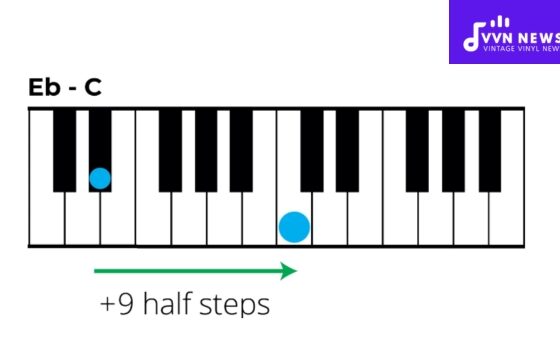When it comes to learning a musical instrument, many aspiring musicians wonder if graded musical examinations hold any significance.
As a professional musician with years of experience, I have often pondered this question myself. Are Graded Musical Examinations Significant?
In this article, we will delve into the world of graded musical examinations and explore their importance, benefits, and potential drawbacks for both students and musicians.
Graded musical examinations are standardized tests that assess a musician’s technical skills, theoretical knowledge, and interpretive abilities on their instrument of choice.
These exams are offered by renowned music examination boards such as the Associated Board of the Royal Schools of Music (ABRSM) or Trinity College London.
As a student progresses in their musical journey, they have the option to undertake these exams at various levels – from initial grades all the way up to diploma levels.
But why should someone consider taking these assessments? Let’s explore their significance in more detail. Are Graded Musical Examinations Significant?
What Are Graded Music Exams?
Graded music exams are standardized assessments conducted by reputable music examination boards such as the Associated Board of the Royal Schools of Music (ABRSM) or Trinity College London.
These exams are designed to evaluate a musician’s technical proficiency, theoretical knowledge, and interpretive skills on their chosen instrument.
Levels and Structure
Graded music exams are offered at various levels, starting from initial grades for beginners and progressing to higher-level diploma exams for advanced musicians.
Each level consists of curated syllabi that outline specific technical exercises, sight-reading tasks, aural tests, and repertoire requirements.
Assessment Process
During a graded exam, students perform pieces from the prescribed repertoire list chosen for their respective grades.
They are evaluated by experienced examiners who assess their technical execution, accuracy, musicality in interpretation, and overall performance.
The exams also include sections where candidates must demonstrate their sight-reading skills and theoretical understanding through written tests.
Purpose and Significance
Graded music exams serve several purposes. Firstly, they provide students with clear goals to work towards and a structured framework for learning and improving their skills.
Through diligent preparation for these exams, students develop discipline, perseverance, and self-confidence.
These assessments also motivate students by offering them recognition for their achievements in the form of certificates awarded by esteemed examination boards.
Graded music exams serve as benchmarks for assessing students’ progress relative to established standards in the field of music education.
They provide independent validation of a student’s abilities and can be used as evidence when applying to universities or pursuing careers in the music industry.
Also Read: 13 Best Power Conditioners For Superior Protection [Buying Guide]
How Do Graded Exams Influence Musical Growth?

Graded music exams play a significant role in the overall musical growth and development of students. Here are several ways in which these exams influence and enhance a musician’s journey:
- Goal-oriented Learning: Graded exams provide students with clear goals to work towards, giving them a sense of direction and structure in their musical studies. This helps students stay motivated and focused on their practice.
- Technical Skills Development: The syllabi for graded exams cover a wide range of technical exercises that challenge students to improve their playing technique and dexterity. By regularly practicing these exercises, students gradually build strength, precision, and control of their instruments.
- Repertoire Expansion: Graded exams require candidates to prepare a selection of pieces from various styles and periods of music. This exposure to diverse repertoire helps broaden a student’s musical understanding and interpretation abilities.
- Musicality Enhancement: The interpretive aspect of graded exams encourages students to delve deeper into the expressive qualities of the music they are performing. They learn to express emotions, nuance, dynamics, and phrasing in a way that captures the essence of the piece.
- Sight-reading Skills: Graded exams include sight-reading components that challenge students to read and perform music they haven’t seen before. This improves their sight-reading skills, enabling them to learn new pieces more efficiently while also enhancing their overall musicianship.
- Theory Knowledge: Alongside practical skills, graded exams also assess candidates’ theoretical knowledge through written tests or aural examinations. This strengthens their understanding of music theory concepts such as harmony, rhythm, scales, and key signatures.
- Performance Confidence: The experience of preparing for and performing in graded exams builds confidence in students’ ability to perform under pressure. They become accustomed to showcasing their skills in an exam setting which can be beneficial for future auditions or public performances.
- Recognition and Feedback: Graded exams provide students with external validation of their abilities through certification. The feedback from experienced examiners helps identify areas for further improvement, offering guidance on how to enhance their playing.
Graded music exams serve as milestones in a musician’s journey, guiding them to develop technical proficiency and musicality, and providing recognition for their achievements.
They stimulate growth and push students to continuously improve their skills, nurturing a lifelong passion for music.
Are Graded Musical Examinations Significant?

Graded musical examinations hold significant importance in the journey of a musician. These exams provide structure, motivation, and validation for students’ musical growth.
Let’s dive deeper into why graded musical examinations are indeed significant.
Structure and Guidance
Graded exams offer a clear path for students to follow in their musical studies. The syllabi provided by examination boards outline specific technical exercises, repertoire requirements, and theoretical knowledge that must be mastered at each level.
This structured approach helps students set goals, monitor progress, and direct their practice sessions toward specific targets.
Motivation and Accountability
Setting clear goals is an excellent motivator. Graded examinations offer tangible milestones for students to work towards.
The process of preparing for an exam instills discipline, dedication, and a strong work ethic in aspiring musicians.
Regular lessons and consistent practice become essential to meet the requirements of each grade.
Validation and Recognition
For many musicians, receiving external validation for their skills and accomplishments is crucial.
With graded exams, students receive certificates from reputable examination boards that highlight their achievements at each level.
These certificates can be used when applying to music schools or universities or even when pursuing professional careers in the music industry.
Benchmark of Progress
Graded exams provide an objective assessment of a student’s abilities against established standards in music education.
By accessing external examiners’ expertise, students gain valuable feedback on their technical skills, interpretation abilities, and overall performance.
This feedback helps them identify areas for improvement and further enhances their musical development.
Graded musical examinations are indeed significant in a musician’s journey as they provide structure, motivation, validation, and benchmarks for progress.
They serve as guiding lights throughout the learning process while fostering discipline and dedication within students.
Embracing graded exams can be a valuable step toward becoming a proficient musician while gaining recognition within the music community.
Also Read: B Major: The Scale And Chords [Guide To This Bold & Beautiful Key]
Alternatives to Graded Music Examinations

While graded music exams have their benefits, they may not be the best fit for every musician. Fortunately, there are alternative ways to assess and advance one’s musical skills.
Here are a few alternatives to consider:
Competitions and Festivals
Participating in music competitions and festivals provides an opportunity for musicians to showcase their talent in a competitive setting.
These events often include performance categories based on age or skill level, allowing participants to receive feedback from judges and gain valuable performance experience.
Recitals and Concerts
One way to gauge your progress as a musician is by regularly performing in recitals and concerts.
These opportunities allow you to present your musical abilities to an audience while building your repertoire and stage presence.
Performing publicly also helps develop confidence and communication skills.
Workshops and Masterclasses
Attending workshops and masterclasses conducted by renowned musicians can offer valuable insights into technique, interpretation, and musicality.
These sessions often involve individual lessons or group instruction, enabling you to receive feedback on your playing while learning from experienced professionals.
Peer Assessments
Engaging in peer assessments can be a beneficial way of receiving constructive feedback from fellow musicians who understand the challenges of learning an instrument.
By exchanging performances with peers, you can provide support, learn from each other’s strengths, and identify areas for improvement together.
Personal Growth Focus
For those seeking a less formal assessment approach, focusing on personal growth can be an alternative path.
Setting specific goals, practicing regularly, recording yourself playing, and self-reflection can help you monitor your progress without the pressure of external assessments.
These alternatives can complement graded music exams rather than replace them entirely. It’s essential to find the approach that suits your learning style, long-term goals, and personal aspirations as a musician.
How Do Music Exams Impact Future Career Opportunities?
Music exams play a significant role in shaping the future career opportunities of aspiring musicians. In today’s highly competitive music industry, these exams provide a valuable credential that can open doors to various opportunities and enhance one’s professional profile.
Recognition and Validation
Successfully completing graded music exams demonstrates a musician’s technical proficiency, musicality, and ability to perform in a structured and controlled environment.
This recognition from established examination boards adds legitimacy to a musician’s skills and serves as validation of their abilities.
Prospective employers, educational institutions, and industry professionals often consider these qualifications when evaluating candidates for scholarships, auditions, or job positions.
Admission to Higher Education
For those aspiring to pursue higher education in music, the completion of graded music exams can be essential.
Many colleges, universities, and conservatories require applicants to have a certain level of achievement in graded exams as part of their admissions criteria.
These exam results serve as evidence of musical aptitude and show the applicant’s commitment and dedication to their craft.
Better Career Prospects
Having completed graded music exams can significantly enhance career prospects for musicians.
These qualifications provide an advantage when applying for performance opportunities, teaching positions, or freelance work.
They demonstrate a musician’s ability to meet high industry standards and give potential employers confidence in their skills.
Specialization Options
Apart from general performance or teaching careers, graded music exams offer specialization options that can boost career prospects further.
Certain advanced levels of these exams focus on specific genres or periods such as jazz music or Baroque repertoire.
By choosing these specialized tracks, musicians can showcase their expertise in niche areas of the industry, increasing their chances of securing unique career opportunities.
Also Read: E Flat Minor Pentatonic Scale [Master This Key With Our Guide]
Network Building
Graded music exams also provide opportunities for musicians to build their professional network.
Through collaborations with other exam candidates, interactions with examiners during assessments, or participation in preparatory classes and workshops offered by examination boards, musicians can connect with peers, mentors, and industry professionals.
These connections can lead to future collaborations, referrals, and exposure within the music community.
Graded music exams have a profound impact on future career opportunities for musicians. They provide recognition and validation of skills, enhance college admissions prospects, create better career opportunities, offer specialization options, and help in building networks within the music industry.
Aspiring musicians should consider taking these exams to unlock their full potential and increase their chances of success in a competitive professional landscape.
What Are the Potential Advantages and Disadvantages of Graded Exams?

Graded music exams have both advantages and disadvantages for students and musicians. Let’s explore these in detail.
Advantages:
- Structured Learning: Graded exams provide a clear structure and framework for students to follow. The syllabi outline specific technical exercises, repertoire, sight-reading tasks, and written tests, enabling students to develop a well-rounded approach to their musical education.
- Goal Setting: These exams offer tangible goals for students to work towards. Having a specific grade to achieve motivates students to practice regularly and strive for continuous improvement. It provides a sense of accomplishment when they successfully pass an exam or progress to a higher level.
- Feedback from Professionals: Graded exams give students the opportunity to receive feedback from experienced examiners who are professionals in their field. This feedback helps students identify areas of strength and weakness, providing guidance on how they can further improve their skills.
- Recognition and Credentials: Successfully completing graded exams from reputable examination boards provides recognition for a student’s achievements in music. Certificates awarded by these boards hold weight in the music industry, helping students with future career opportunities or university applications.
Disadvantages:
- Narrow Focus on Exam Preparation: The intense preparation required for graded exams can sometimes lead to a narrowed focus on exam-specific skills rather than overall musical development. This may limit the exploration of diverse musical genres or hinder creative expression.
- Performance Anxiety: Graded exams can induce performance anxiety in some students, leading to stress and nervousness during the exam process. This pressure may affect their overall enjoyment of playing an instrument or hinder their ability to convey their true potential during the examination.
- Limited Repertoire Selection: Graded exam syllabi include specific pieces that must be performed during the assessment. This restricts the freedom of choice when it comes to repertoire selection and may limit students from exploring other genres or pieces of their interest.
- Cost and Time Commitment: Graded exams require financial investment in terms of exam fees, preparation materials, and regular lessons. Additionally, the preparation process can be time-consuming, requiring consistent practice and dedication.
It is essential to consider these advantages and disadvantages when deciding whether to undertake graded musical examinations.
While they provide structure, recognition, and feedback, it is important to ensure a holistic approach to musical development alongside exam preparation.
FAQs about Graded Musical Examinations
Are graded musical examinations only for classical musicians?
No, graded musical examinations are available for a wide range of instruments and musical genres, including classical, jazz, rock, and pop. There is something for everyone regardless of their preferred style of music.
Can adults also take graded music exams?
Absolutely! Graded music exams are not limited to children or young students. Adults who wish to pursue their passion for music or develop their skills can certainly take these exams and benefit from the structured learning process they offer.
Are graded music exams necessary for becoming a professional musician?
While it’s not mandatory to take graded music exams in order to become a professional musician, they can be incredibly valuable. These exams provide credibility to your skill set, enhance your musical knowledge, and open up opportunities for further education or professional development.
What if I am not interested in pursuing a career in music? Are these exams still relevant?
Even if you don’t plan on pursuing a career in music, graded musical examinations can still be personally fulfilling and enriching. They help you progress on your instrument, improve your technique and musicianship, and serve as tangible milestones in your musical journey.
Are there any disadvantages to taking graded music exams?
Although the benefits of graded music exams are numerous, it’s important to acknowledge that they may not suit everyone’s learning style or goals. Some individuals may feel pressured by the exam format or find it limiting creatively. It’s essential to consider personal inclinations and consult with instructors or mentors before making a decision.
Conclusion
Graded musical examinations can be a significant and valuable tool in the musical journey of a student.
They offer structure, motivation, and recognition for achievements while providing a standardized benchmark for assessing progress.
However, it’s important to remember that the significance of these exams may vary for each individual. It is crucial to balance the pursuit of graded exams with broader musical development and personal goals.
Ultimately, the decision to undertake graded musical examinations should be based on the needs and aspirations of the student.








